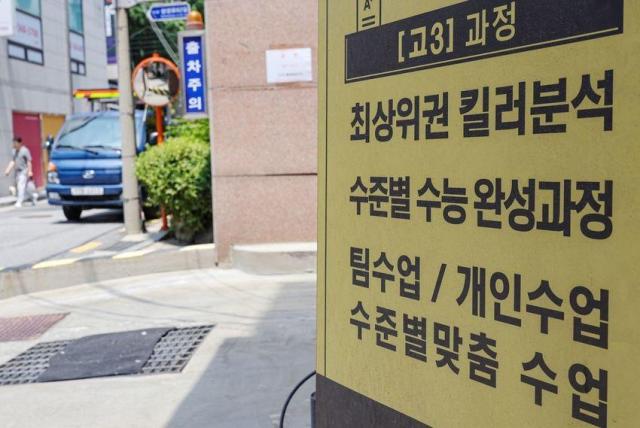
SEOUL -- South Korean families are shelling out more than ever for private tutoring, with costs exceeding 27 trillion won ($20.5 billion) in 2023. This marks a 4.5 percent increase from the previous year and the third consecutive year of record-breaking spending.
High school students are the main drivers of this growth, according to the Ministry of Education and Statistics Korea. Their private education costs surged by 8.2 percent.
The high cost of private education is a major concern for both families and policymakers. The government aimed to reduce spending by 6.9 percent in 2023 through initiatives like expanding after-school programs and offering financial aid, but these efforts fell short.
Experts point to several factors fueling the spending surge. Last year's debate over removing difficult questions from the college entrance exam fueled student anxiety and pushed them towards private tutors. Additionally, the ongoing "medical school fever" has intensified competition in science and math, further boosting demand for private education.
Curbing spending remains a challenge despite various government policies. Experts suggest more targeted approaches, such as diversifying the university entrance system, reducing reliance on standardized testing, and promoting a holistic approach to education.
While private education is seen as a path to success, it creates a significant financial burden on families and exacerbates educational inequality.
Further complicating the issue, educational policies are often swayed by politics, leading Korean parents and students to rely more heavily on private education. Both liberal and conservative governments have implemented reforms to address the issue, but these have failed to produce significant results, only eroding trust in public education.
Copyright ⓒ Aju Press All rights reserved.
